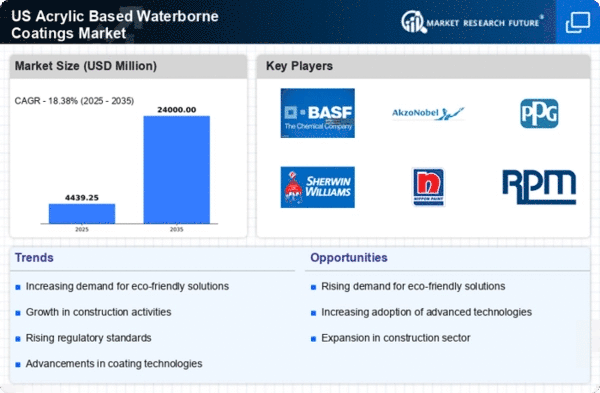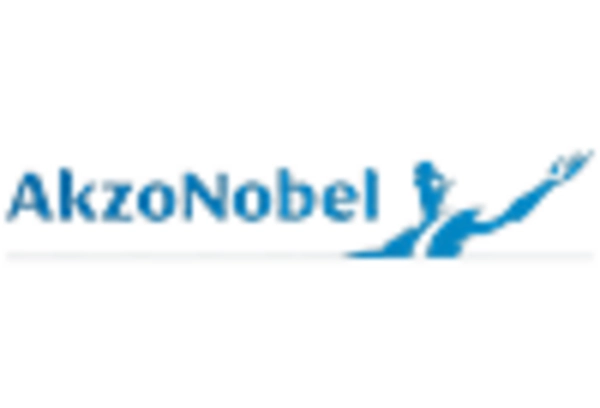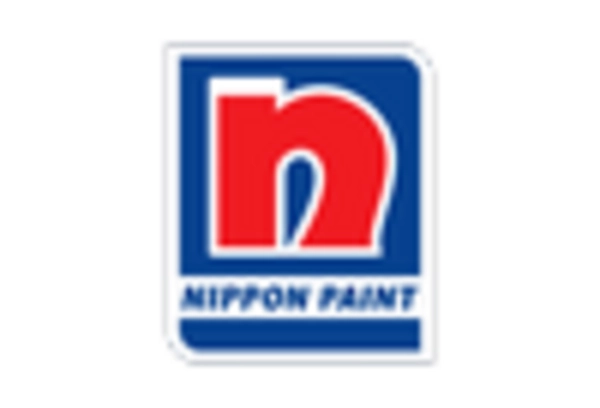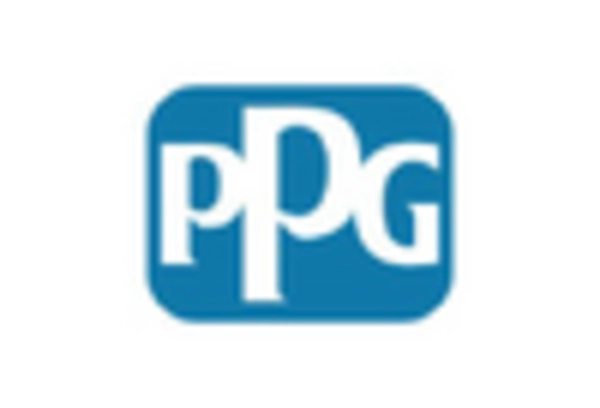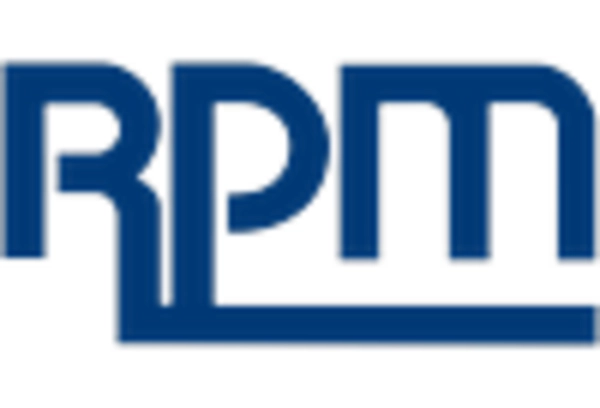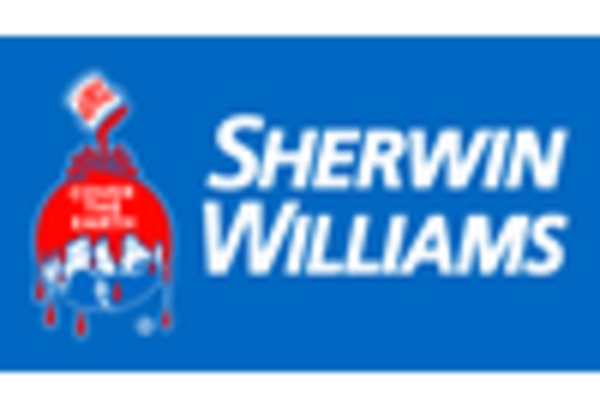Increased Focus on Aesthetic Appeal
Aesthetic appeal is becoming increasingly important in the acrylic based-waterborne-coatings market, particularly in the residential and commercial sectors. Consumers are seeking coatings that not only provide protection but also enhance the visual aspects of surfaces. This trend is driving manufacturers to develop a wider range of colors, finishes, and textures. In 2025, it is estimated that decorative coatings will represent approximately 30% of the market. The growing popularity of DIY projects and home renovations is further fueling this demand, as consumers look for products that are easy to apply and offer a professional finish. This focus on aesthetics is likely to continue influencing product development and marketing strategies.
Growth in Eco-Friendly Product Offerings
The acrylic based-waterborne-coatings market is witnessing a notable shift towards eco-friendly product offerings. As consumers become more environmentally conscious, there is a growing preference for coatings that are low in VOCs and made from sustainable materials. This trend is prompting manufacturers to reformulate their products to align with consumer expectations and regulatory requirements. In 2025, eco-friendly coatings are projected to capture a significant share of the market, potentially exceeding 25%. This shift not only reflects changing consumer preferences but also encourages innovation in the development of sustainable coatings, thereby enhancing the competitive landscape of the market.
Rising Demand from the Architectural Sector
The architectural sector is a significant driver for the acrylic based-waterborne-coatings market, as the demand for high-quality, durable, and aesthetically pleasing coatings continues to rise. With the increasing focus on residential and commercial construction projects, the market is poised for growth. In 2025, the architectural segment is expected to account for nearly 40% of the total market share. This growth is attributed to the need for coatings that offer superior performance, such as weather resistance and color retention. Additionally, the trend towards energy-efficient buildings further propels the demand for waterborne coatings, as they contribute to improved indoor air quality and reduced environmental impact.
Regulatory Compliance and Environmental Standards
The acrylic based-waterborne-coatings market is experiencing a surge in demand due to stringent regulatory compliance and environmental standards in the US. Government agencies are increasingly enforcing regulations that limit the use of volatile organic compounds (VOCs) in coatings. This shift towards eco-friendly products is compelling manufacturers to innovate and develop waterborne coatings that meet these standards. As a result, the market is projected to grow at a CAGR of approximately 5.5% from 2025 to 2030. The emphasis on sustainability not only aligns with consumer preferences but also encourages manufacturers to invest in research and development, thereby enhancing the overall market landscape.
Technological Innovations in Coating Formulations
Technological innovations play a crucial role in shaping the acrylic based-waterborne-coatings market. Advances in polymer chemistry and formulation technologies are enabling manufacturers to create coatings with enhanced properties, such as improved adhesion, durability, and resistance to environmental factors. These innovations are likely to attract a broader customer base, including industries such as automotive and furniture. The market is expected to witness a growth rate of around 6% annually as new formulations are developed to meet specific application needs. Furthermore, the integration of smart technologies into coatings, such as self-cleaning and anti-microbial properties, is anticipated to drive future demand.


